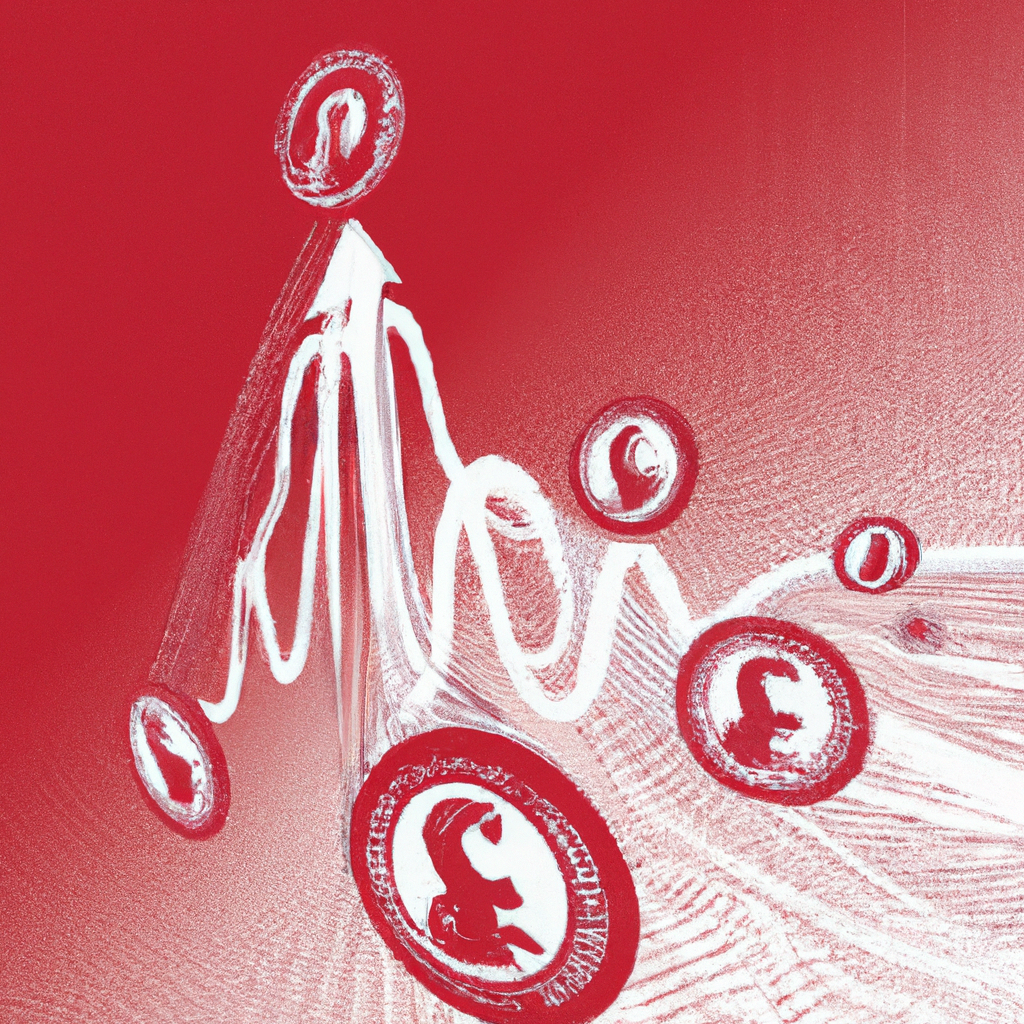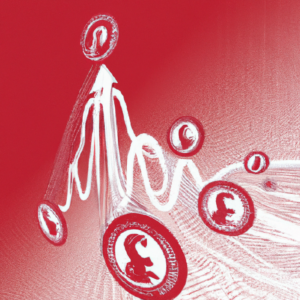Have you ever stopped to consider how inflation affects the way people view the economy and their trust in government policies? In this article, we will explore the intricate relationship between inflation and public perception, and how rising prices can create a ripple effect that extends beyond the realm of personal finance. Join us as we delve into the effects of inflation on public trust and gain a deeper understanding of its impact on our society.
1. Overview of Inflation
1.1 Definition of Inflation
Inflation refers to the sustained increase in the general level of prices in an economy over a period of time. It means that the value of money decreases, and as a result, each unit of currency can buy fewer goods and services than before. Inflation is typically measured by calculating the percentage change in the consumer price index (CPI) or the wholesale price index (WPI).
1.2 Types of Inflation
There are various types of inflation that can occur in an economy. Demand-pull inflation occurs when consumer demand exceeds the supply of goods and services, leading to price increases. Cost-push inflation, on the other hand, is driven by rising production costs, such as wages or raw materials. Another type is built-in inflation, which results from expectations of future price increases and leads to higher wages and prices in an economy.
1.3 Causes of Inflation
The causes of inflation can be multifaceted and vary depending on the economic conditions of a country. Some common factors include an increase in money supply, excessive government spending, rising energy costs, changes in exchange rates, and supply shocks, among others. Understanding the underlying causes of inflation is crucial for policymakers in formulating effective strategies to manage and control it.
1.4 Measurement of Inflation
Inflation is measured using various indicators and indices. The most commonly used measures are the Consumer Price Index (CPI) and the Wholesale Price Index (WPI). The CPI measures changes in the prices of a basket of goods and services typically consumed by households, while the WPI measures changes in the prices of goods sold in bulk by businesses. These indices provide valuable insights into the general trend of inflation and help policymakers and economists monitor and analyze its impact on the economy.
2. Public Perception of Inflation
2.1 Awareness and Understanding of Inflation
Public awareness and understanding of inflation play a significant role in shaping people’s perceptions of the economy and government policies. Unfortunately, many individuals have a limited understanding of what inflation is and how it affects their daily lives. As a result, they may struggle to accurately gauge the impact of inflation on their purchasing power and savings.
2.2 Perception of Inflation’s Impact on Daily Living
The perception of inflation’s impact on daily living can vary depending on individuals’ financial circumstances and their ability to cope with rising prices. Those with fixed incomes or low-wage earners may feel the pinch more severely as inflation erodes their purchasing power. On the other hand, individuals with higher incomes or investments in assets that appreciate with inflation may be less affected or even benefit from inflation.
2.3 Trust in Government Reporting of Inflation
Public trust in government reporting of inflation is crucial for maintaining credibility and confidence in economic policies. If people perceive that official inflation figures are manipulated or inaccurate, it can undermine their trust in the government’s ability to manage the economy. Clear and transparent reporting of inflation data is essential to ensure the public’s confidence in the integrity of economic information.
2.4 Media Influence on Public Perception
The media plays a significant role in shaping public perception of inflation. The way inflation is portrayed in the media can influence how people perceive its impact on their daily lives and the economy as a whole. If the media focuses solely on rising prices without providing adequate context or analysis, it can create a sense of panic and further erode public trust in the economy and government policies.

3. Inflation’s Impact on Economic Confidence
3.1 Effect on Consumer Spending
Inflation has a direct impact on consumer spending patterns. As prices rise, individuals may reduce their discretionary spending and focus on essential goods and services. This can lead to a decline in consumer confidence and lower overall economic activity. Conversely, if people anticipate future price hikes, they may engage in panic buying, further driving up prices and creating supply shortages.
3.2 Impact on Business Investments
Inflation can also affect business investments and decision-making. High inflation rates erode the purchasing power of businesses’ profits and reduce the returns on investment. Uncertainty about future inflation levels can also discourage long-term investments and cause businesses to adopt a more cautious approach. This can have a negative impact on economic growth and the creation of new job opportunities.
3.3 Effect on Job Market and Unemployment
Inflation can influence the job market and employment rates in several ways. As production costs increase due to inflation, businesses may cut costs by reducing their workforce or freezing hiring. High inflation rates can also lead to wage-price spirals, where workers demand higher wages to keep up with rising living costs, ultimately leading to higher unemployment rates if businesses cannot afford these wage hikes.
3.4 Influence on Stock Market and Investments
Inflation can significantly impact the stock market and investment portfolios. Rising prices may reduce the purchasing power of dividends and interest from investments, making them less attractive to investors. Additionally, inflation can alter investors’ risk perceptions, leading to greater market volatility and uncertainty. Investors need to account for inflation when making investment decisions to preserve the real value of their assets.
4. Inflation and Financial Institutions
4.1 Role of Central Banks in Inflation Management
Central banks play a crucial role in managing inflation through monetary policy tools. They aim to maintain price stability and promote economic growth by controlling the money supply, adjusting interest rates, and influencing lending and borrowing activities. The effectiveness of central bank policies in managing inflation directly impacts public trust in financial institutions and their ability to stabilize the economy.
4.2 Trust in Central Bank Policies
Public trust in central bank policies is vital for their effectiveness in managing inflation. If the public believes that central banks are not independent or are influenced by political pressures, it can undermine the credibility of their policies. Central banks must communicate monetary policy decisions clearly and transparently to build public trust and ensure their policies are perceived as credible and effective.
4.3 Confidence in Banks and Financial Stability
Inflation can have implications for people’s confidence in banks and overall financial stability. If inflation erodes the value of savings and investments, individuals may question the reliability and security of banks. This can lead to a decrease in savings rates and a shift towards alternative forms of saving or investing. Maintaining financial stability and ensuring the security of deposits is crucial in maintaining public trust in banks.
4.4 Impact on Borrowing and Lending
Inflation can influence borrowing and lending behavior in the economy. High inflation rates may lead to an increase in interest rates, making borrowing more expensive for businesses and individuals. This can reduce borrowing and investment activities, potentially slowing down economic growth. Lending institutions must manage inflation risks and adapt their lending practices to meet the changing needs of borrowers in an inflationary environment.

5. Government Policies and Inflation
5.1 Monetary Policy and Inflation
Monetary policy plays a central role in managing inflation. Central banks use various tools, such as adjusting interest rates and controlling the money supply, to influence inflation levels. The effectiveness of monetary policy in controlling inflation depends on several factors, including the stability of financial institutions, the credibility of central bank policies, and the cooperation between monetary and fiscal authorities.
5.2 Fiscal Policy and Its Effect on Inflation
Fiscal policy, carried out by governments, can also impact inflation. Government spending, taxation, and public debt management policies all influence aggregate demand and, subsequently, inflation. Expansionary fiscal policies, such as increased government spending or tax cuts, can stimulate economic growth but may also lead to inflationary pressures if not properly managed.
5.3 Role of Government in Inflation Control
Governments have a responsibility to implement policies and regulations that support price stability and control inflation. This includes monitoring fiscal policies, ensuring balanced economic growth, and creating an environment conducive to long-term productivity and competitiveness. The government’s ability to effectively manage inflation can greatly influence public trust in its economic management and policies.
5.4 Perception of Government’s Ability to Manage Inflation
Public perception of the government’s ability to manage inflation is critical for maintaining confidence in its economic policies. If people believe that the government is not taking adequate measures to control inflation, it can erode public trust and confidence in the overall economy. Transparent communication, data accuracy, and effective policy implementation are essential to build and maintain trust in the government’s ability to manage inflation.
6. Inflation’s Socioeconomic Implications
6.1 Income Inequality and Poverty
Inflation can have significant socioeconomic implications, particularly concerning income inequality and poverty. The impact of inflation on different income groups varies, with low-income individuals and those reliant on fixed incomes being the most vulnerable. Rising prices disproportionately affect these groups, as they may struggle to meet their basic needs and experience a decline in their standard of living.
6.2 Cost of Living and Affordability
The cost of living and overall affordability of goods and services are directly affected by inflation. As prices rise, households may face increased financial strain and struggle to afford essential items. This can negatively impact living standards and contribute to a decline in socio-economic well-being. People may adjust their consumption patterns, prioritize essential goods, and cut back on discretionary spending to cope with higher prices.
6.3 Impact on Savings and Retirements
Inflation can significantly impact savings and retirement plans. As the value of money decreases over time, the real value of savings and retirement funds can erode. This poses challenges for individuals planning for the future and can result in a decrease in the purchasing power of accumulated savings. Managing inflation risk and making informed investment decisions become essential for safeguarding long-term financial security.
6.4 Influence on Social Welfare Programs
Inflation can also affect the effectiveness of social welfare programs. Government assistance programs designed to support vulnerable populations may struggle to keep up with rising prices, potentially reducing their impact and leaving individuals with inadequate support. It becomes important for policymakers to consider the impact of inflation when designing and implementing social welfare initiatives to ensure their continued effectiveness.
7. Historical Case Studies
7.1 Hyperinflation in Weimar Germany
One of the most notable historical cases of hyperinflation occurred in Weimar Germany during the early 1920s. The rapid increase in prices led to a collapse in the value of the German currency. The hyperinflation period resulted in widespread social and economic upheaval, with severe consequences for the German people and their trust in the government and financial institutions.
7.2 Inflationary Periods in Latin America
Latin America has experienced several inflationary periods throughout its history. High inflation rates in countries like Argentina, Brazil, and Venezuela have had significant socio-economic consequences, including a loss of trust in the government and financial instability. These experiences highlight the importance of effective inflation management to maintain economic stability and public trust.
7.3 Zimbabwe’s Hyperinflation
Zimbabwe’s hyperinflation in the 2000s is another example of the devastating impact of inflation on a nation’s economy and public trust. Inflation rates reached astronomical levels, eroding the value of savings and causing severe hardships for the population. The rampant hyperinflation undermined trust in the country’s financial institutions and government, creating a challenging economic and social environment.
7.4 Inflation and Trust in Government in Venezuela
Venezuela’s ongoing economic crisis, marked by hyperinflation, has had a profound impact on public trust in the government. The hyperinflationary environment has caused widespread economic turmoil, increased poverty rates, and a decline in living standards. People’s trust in the government’s ability to control inflation and manage the economy has been significantly eroded, leading to political and social unrest.
8. Mitigating Factors and Solutions
8.1 Role of Monetary Policy Tools
Monetary policy tools, such as interest rate adjustments and managing the money supply, play a crucial role in mitigating inflationary pressures. Central banks must carefully calibrate these tools to maintain price stability while promoting economic growth. Effective monetary policy implementation can help instill public confidence in the economy and reduce the impact of inflation on people’s livelihoods.
8.2 Government Intervention to Control Inflation
Government intervention can complement monetary policy in controlling inflation. Implementing appropriate fiscal policies, including responsible government spending, taxation strategies, and debt management, are essential to prevent excessive inflationary pressures. Coordinated efforts between monetary and fiscal authorities can enhance the effectiveness of inflation control measures and foster public trust in economic policies.
8.3 Transparency and Communication to Build Trust
Transparency and effective communication are vital in building trust between policymakers, financial institutions, and the public. Openly sharing information about inflation rates, policy decisions, and future economic plans helps people understand the rationale behind government actions. Honest and clear communication can foster trust, reduce uncertainty, and enhance public perception of inflation management efforts.
8.4 Economic Education and Financial Literacy
Promoting economic education and financial literacy among the public is crucial for fostering a better understanding of inflation and its implications. By improving individuals’ knowledge about inflation, its causes, and its impact on the economy, people can make more informed decisions about their finances and become more engaged in the economic policy-making process. Educated and financially literate individuals are better equipped to navigate inflationary environments and adapt their behavior accordingly.
9. The Psychology of Inflation
9.1 Loss Aversion and Inflation
Loss aversion refers to the tendency for individuals to feel the pain of financial losses more acutely than the pleasure of corresponding gains. In the context of inflation, loss aversion can lead people to focus on the erosion of their purchasing power and perceive inflation as a negative force. This psychological bias can influence individuals’ perception of inflation and impact their trust in the economy and government policies.
9.2 Influence of Inflation Expectations
Inflation expectations play a crucial role in determining people’s behavior and decision-making. If individuals expect high levels of inflation in the future, they may adjust their spending, borrowing, and saving patterns accordingly. Expectations can be influenced by various factors, including media narratives, economic indicators, and personal experiences. Accurate and credible inflation expectations are important for individuals to make informed financial decisions.
9.3 Behavioral Biases in Decision-Making
Behavioral biases can lead individuals to make irrational decisions when faced with inflationary pressures. Biases such as anchoring, availability bias, and framing can impact how people perceive and respond to inflation. These biases can influence individuals’ financial choices, investment strategies, and overall confidence in the economy and government policies.
9.4 Psychological Effects of Inflation on Trust
Inflation can have psychological effects on individuals’ trust in the economy, financial institutions, and government policies. If people’s savings and financial security are eroded by inflation, it can lead to feelings of insecurity and decreased trust in the financial system. Additionally, if individuals perceive that government policies are inadequate in managing inflation, it can further erode trust in the government’s competence and ability to safeguard their economic well-being.
10. Conclusion
Inflation has far-reaching implications on public trust in the economy and government policies. Understanding the causes and consequences of inflation, as well as its impact on different aspects of society, is crucial for policymakers, financial institutions, and individuals alike. By implementing effective inflation management strategies, promoting transparency, and enhancing economic education, it is possible to mitigate the negative effects of inflation and foster public trust in the economy and government policies.

